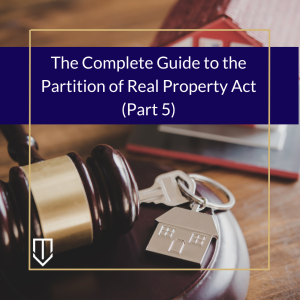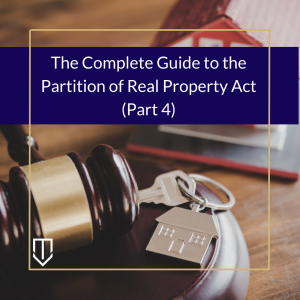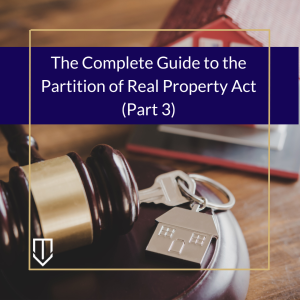What if parties do not appear in a lawsuit requesting partition in kind under the Partition of Real Property Act?
 Just as there are special provisions for defaulting parties with partitions by sale, so too are there unique rules where some defendants fail to appear in a partition in kind action.
Just as there are special provisions for defaulting parties with partitions by sale, so too are there unique rules where some defendants fail to appear in a partition in kind action.
The text of the statute provides that, “if the court orders a partition in kind, the court shall allocate to the cotenants that are unknown, unlocatable, or the subject of a default judgment… a part of the property representing the combined interests of these cotenants as determined by the court.” (CCP § 874.318 (d).)
 California Partition Law Blog
California Partition Law Blog


 This is a continuation of our ongoing series on the Complete Guide to the Partition of Real Property Act. For complete comprehension, we would suggest
This is a continuation of our ongoing series on the Complete Guide to the Partition of Real Property Act. For complete comprehension, we would suggest  How does the court appraise the property (CCP § 874.316)?
How does the court appraise the property (CCP § 874.316)?